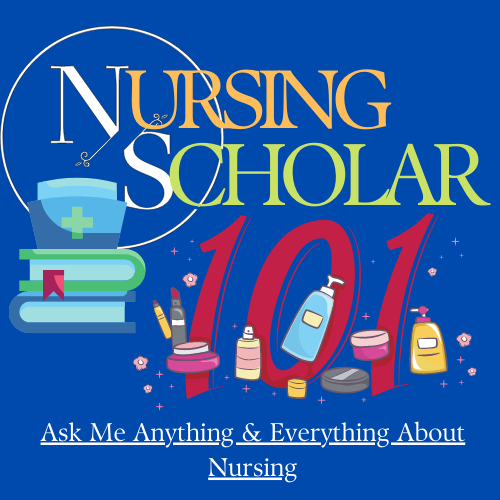Understanding Hormones in the Human Body
Introduction
Hormones are the body’s chemical messengers, orchestrating a complex symphony of physiological processes that regulate growth, development, metabolism, mood, and more. This article aims to unravel the intricate world of hormones, exploring their types, functions, and the profound impact they have on human health.
The Endocrine System
The endocrine system, a network of glands, tissues, and organs, is responsible for producing and releasing hormones into the bloodstream. Unlike the nervous system, which delivers rapid, short-term signals, the endocrine system provides slower but more prolonged regulation, ensuring a delicate balance within the body.
Types of Hormones
Hormones fall into three main categories: peptide hormones, steroid hormones, and amino acid-derived hormones. Each type has distinct characteristics, including their structure, mode of action, and the physiological processes they influence.
Hormone Production and Release
Various glands in the body, such as the pituitary gland, thyroid gland, and pancreas, produce hormones. Hormone release is influenced by factors such as stress, sleep, and external stimuli. This intricate process ensures that the body’s responses align with its internal and external environments.
Hormones and Cellular Communication
Hormones communicate with cells through specific receptors on the cell surface or within the cell. The binding of hormones to these receptors initiates a cascade of events, influencing cellular activities and maintaining homeostasis.
Major Hormones in the Human Body
Several key hormones play pivotal roles in human physiology. Insulin regulates blood sugar levels, cortisol responds to stress, thyroid hormones govern metabolism, and reproductive hormones, including testosterone and estrogen, influence sexual development and fertility. Growth hormone is instrumental in childhood growth and overall development.
Role of Hormones in Growth and Development
Hormones significantly impact growth and development, especially during childhood and puberty. Growth hormone, in particular, influences the growth of bones and tissues, while hormonal changes during puberty trigger physical and reproductive maturation.
Hormones and Metabolism
Metabolic hormones, such as insulin, play a crucial role in regulating metabolism. They influence processes like glucose uptake, energy storage, and utilization, ultimately maintaining a delicate balance in the body’s energy expenditure.
Hormones and Reproduction
Reproductive hormones, including testosterone and estrogen, guide the development of sexual characteristics and regulate the menstrual cycle. These hormones play integral roles in fertility, pregnancy, and overall reproductive health.
Stress Hormones
Cortisol, often referred to as the stress hormone, is central to the body’s response to stress. While acute stress triggers a temporary increase in cortisol levels, chronic stress can lead to long-term disruptions, affecting various physiological systems.
Hormonal Imbalances
Imbalances in hormone levels can result from factors such as age, stress, and medical conditions. Conditions like diabetes, thyroid disorders, and hormonal disruptions affecting reproductive health highlight the diverse impact of hormonal imbalances on overall health.
Hormones and Mental Health
Hormones play a crucial role in influencing mood and emotions. Imbalances in certain hormones have been linked to mental health disorders such as anxiety and depression, emphasizing the intricate connection between hormonal health and emotional well-being.
Regulation of Hormones
The body tightly regulates hormone levels through feedback mechanisms. These mechanisms ensure that hormone production and release are adjusted based on the body’s needs, maintaining a delicate balance essential for optimal health.
Conclusion
Hormones, the silent conductors of the body’s orchestra, govern a myriad of processes that define human health and well-being. From growth and metabolism to reproduction and stress response, understanding the intricate world of hormones is crucial for appreciating the complexity of the human body. As we delve deeper into the realms of endocrinology, we gain valuable insights into the delicate equilibrium that sustains our health and vitality.
Here is a list of some important hormones in the human body, along with their primary functions:
1. Insulin:
– Source: Pancreas
– Function: Regulates blood sugar levels by facilitating the uptake of glucose into cells for energy.
2. Glucagon:
– Source: Pancreas
– Function: Raises blood sugar levels by promoting the breakdown of glycogen into glucose in the liver.
3. Cortisol:
– Source: Adrenal glands
– Function: Regulates metabolism, reduces inflammation, and plays a key role in the body’s stress response.
4. Adrenaline (Epinephrine):
– Source: Adrenal glands
– Function: Initiates the “fight or flight” response, increasing heart rate and preparing the body for immediate action in response to stress.
5. Thyroid Hormones (T3 and T4):
– Source: Thyroid gland
– Function: Regulate metabolism, energy production, and influence the growth and development of tissues.
6. Estrogen:
– Source: Ovaries (also produced in smaller amounts by the adrenal glands and fat cells)
– Function: Promotes the development of female secondary sexual characteristics, regulates the menstrual cycle, and supports reproductive health.
7. Progesterone:
– Source: Ovaries (also produced in smaller amounts by the adrenal glands and placenta during pregnancy)
– Function: Prepares the uterus for pregnancy, regulates the menstrual cycle, and supports pregnancy.
8. Testosterone:
– Source: Testes (also produced in smaller amounts by the adrenal glands)
– Function: Promotes the development of male secondary sexual characteristics, supports sperm production, and influences libido.
9. Growth Hormone (GH):
– Source: Pituitary gland
– Function: Stimulates growth, cell reproduction, and regeneration.
10. Melatonin:
– Source: Pineal gland
– Function: Regulates the sleep-wake cycle and has antioxidant properties.
11. Oxytocin:
– Source: Hypothalamus and released by the pituitary gland
– Function: Facilitates social bonding, stimulates uterine contractions during childbirth, and promotes milk ejection during breastfeeding.
12. Vasopressin (Antidiuretic Hormone – ADH):
– Source: Hypothalamus and released by the pituitary gland
– Function: Regulates water balance in the body by influencing water reabsorption in the kidneys.
13. Parathyroid Hormone (PTH):
– Source: Parathyroid glands
– Function: Regulates calcium and phosphate levels in the blood, influencing bone health.
14. Calcitonin:
– Source: Thyroid gland
– Function: Regulates calcium levels by promoting calcium deposition in bones.
15. Leptin:
– Source: Fat cells (adipose tissue)
– Function: Regulates appetite and energy balance by signaling the brain about the body’s fat stores.
These hormones work together to maintain the body’s physiological balance and contribute to various essential functions. It’s important to note that this list is not exhaustive, as there are many other hormones with specific roles in the body.
Frequently Asked Questions (FAQs)
1. What are hormones and their functions?
– Hormones are chemical messengers produced by glands in the endocrine system, regulating various physiological processes such as growth, metabolism, and mood.
2. How is hormone release regulated in the body?
– Hormone release is regulated through feedback mechanisms, where the body monitors hormone levels and adjusts production accordingly. Factors like stress, sleep, and external stimuli also influence hormone release.
3. What happens when there is an imbalance of hormones?
– Hormonal imbalances can lead to various health issues, including diabetes, thyroid disorders, and reproductive health problems. The symptoms depend on the specific hormones involved and the nature of the imbalance.
4. Can hormonal imbalances be treated naturally?
– Lifestyle changes, such as a balanced diet, regular exercise, and stress management, can contribute to hormonal balance. However, treatment approaches vary depending on the underlying cause, and consultation with a healthcare professional is recommended.
5. How does aging affect hormone levels?
– Aging is associated with changes in hormone levels. Some hormones decline with age, contributing to aspects of the aging process, while others may increase. These changes can influence various aspects of health and well-being.
https://nursingscholar101.com/demystifying-hormones-a-comprehensive-guide/





